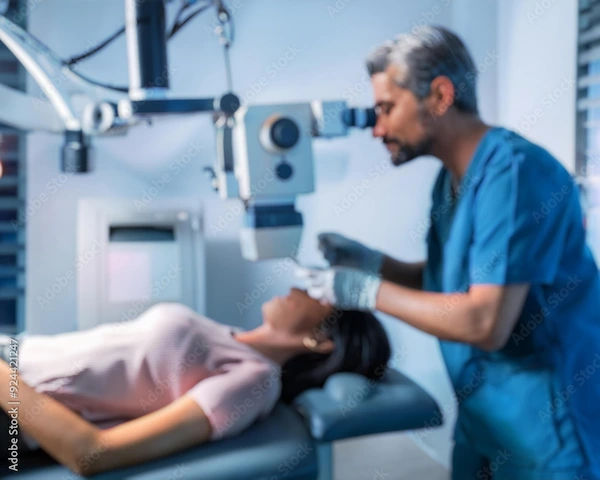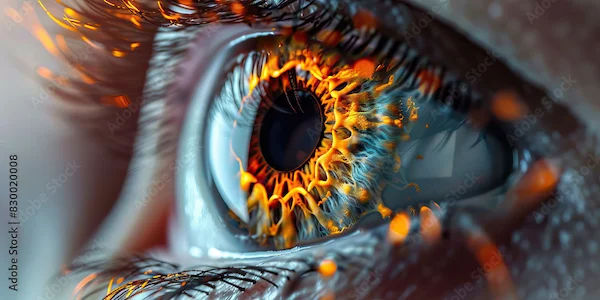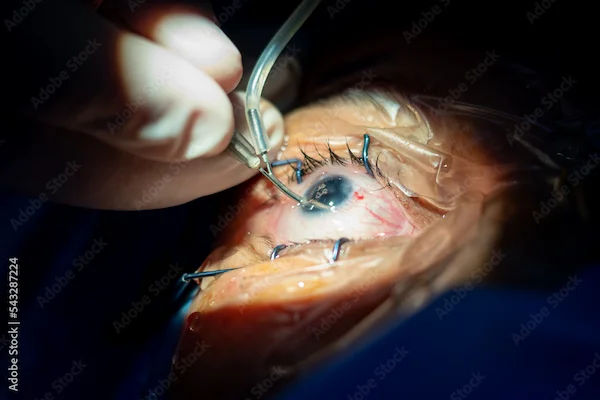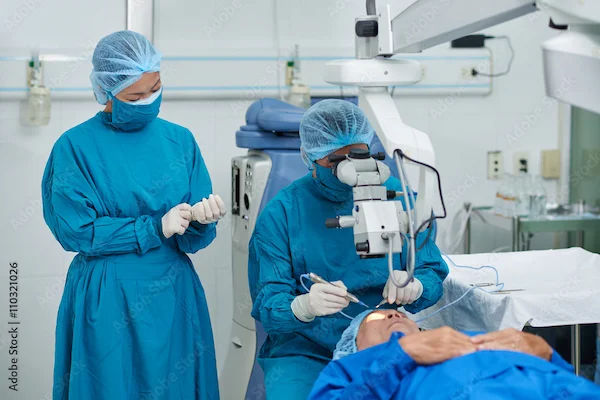Cataract Surgery Management
Cataract surgery is a safe, effective way to restore clear vision. Learn about symptoms, when surgery is needed, lens options, recovery tips, and how to prepare.

Written by Dr.Sonia Bhatt
Last updated on 15th Jul, 2025
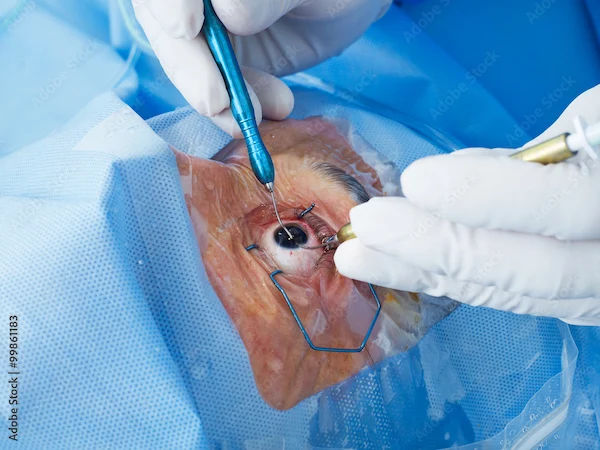
Introduction
Cataracts are a common eye condition, especially in older adults, where the eye's natural lens becomes cloudy, leading to blurry vision. Imagine looking through a foggy window—that’s how vision with cataracts can feel. Over time, cataracts can make daily activities like reading, driving, or recognising faces difficult.
The good news? Cataract surgery is a safe and effective way to restore clear vision. If you or a loved one is considering cataract surgery, this guide will help you understand what to expect before, during, and after the procedure.
Symptoms of Cataracts
Before considering surgery, it’s important to recognise the signs of cataracts:
Blurry or cloudy vision
Difficulty seeing at night
Sensitivity to light and glare
Seeing halos around lights
Frequent changes in eyeglass prescription
Fading or yellowing of colours
If these symptoms interfere with your daily life, it may be time to consult an eye specialist.
Consult Top Specialists for Your Symptoms
When Is Cataract Surgery Needed?
Not all cataracts require immediate surgery. Many people manage early cataracts with stronger glasses or better lighting. However, surgery is recommended when:
Vision loss affects daily activities like driving, reading or watching TV.
The cataract causes other eye problems like glaucoma.
Your eye doctor determines that surgery is the best option.
The decision depends on your lifestyle and how much the cataract bothers you.
What Happens During Cataract Surgery?
Cataract surgery is a quick outpatient procedure that usually takes around 15–30 minutes and is performed under local anaesthesia.
1. Before Surgery
Your doctor will perform a pre-operative eye exam to measure your eye shape and select the right artificial lens, like an intraocular lens or IOL.
You may be asked to stop certain medications temporarily.
You’ll receive eye drops to prevent infection and reduce swelling.
2. During Surgery
Local anaesthesia (numbing drops) is applied—you’ll be awake but won’t feel pain.
The surgeon makes a tiny incision and uses ultrasound (phacoemulsification) to break up and remove the cloudy lens.
A clear artificial lens (IOL) is placed in your eye.
No stitches are needed—the incision heals naturally.
3. After Surgery
You’ll rest briefly before going home (you’ll need someone to drive you).
You’ll wear a protective shield for a few days.
Recovery is quick, with most people noticing improved vision within a few days.
Types of Intraocular Lenses (IOLs)
Your surgeon will help you choose an IOL based on your vision needs:
Monofocal IOL – Improves distance vision; reading glasses may still be needed.
Multifocal IOL – Allows for clearer vision at multiple distances, reducing dependence on glasses.
Toric IOL – Corrects astigmatism and provides sharper overall vision.
Discuss your day-to-day habits—like driving, reading, or hobbies—to choose the most suitable lens option.
Post-Surgery Care & Recovery Tips
To ensure a smooth recovery:
Use prescribed eye drops to prevent infection and inflammation.
Avoid rubbing your eyes—wear the protective shield while sleeping.
Skip strenuous activities like heavy lifting or swimming for a few weeks.
Wear sunglasses outdoors to protect from bright light.
Attend follow-up visits to monitor healing.
Most people resume normal activities within a week, but full recovery takes about a month.
Possible Risks & Complications
Cataract surgery is highly successful, but like any procedure, it has minor risks:
Mild redness, swelling, or dry eyes
Posterior capsule opacity (PCO), which may cause blurred vision, easily corrected with a laser treatment
Serious complications like infection or retinal detachment are rare. Report severe pain or sudden vision loss to your doctor immediately.
When to Consult a Doctor
If you experience:
Worsening vision after surgery.
Severe pain or redness.
Flashes of light or floaters, which could indicate retinal issues.
Don’t hesitate to seek medical help.
Final Thoughts: Life After Cataract Surgery
Most patients enjoy sharper, brighter vision after cataract surgery. Colours appear more vivid, and daily tasks become easier. If cataracts are affecting your quality of life, surgery can be a life-changing solution.
If you suspect cataracts or want to discuss surgery options, Apollo 24|7 makes it easy to book an eye consultation or schedule tests from home.
Consult Top Eye Specialists
Consult Top Specialists for Your Symptoms
Dr. S Venkateswaran
Ophthalmologist
35 Years • MBBS, PGD (OPTHALMOLOGY)
Tiruvannamalai
Shiva Eye And General Hospital, Tiruvannamalai

Dr Rajesh Rastogi
Ophthalmologist
33 Years • MBBS, MS Ophthalmology
New Delhi
Rotary Diabetic Centre, New Delhi
Dr. Akashdipta Saha
Ophthalmologist
4 Years • MBBS, MD(Ophthalmology), Fellowship in Retina & Vitreous
Delhi
AIIMS, Delhi
Dr. Harshavardhan Reddy
Ophthalmologist
3 Years • MBBS , MS (Ophthalmology)
Hyderabad
Ram Dev Rao Hospital, Hyderabad
Dr. V.chittibabu
Ophthalmologist
30 Years • MBBS, MS
Vellore
Krupa Eye Clinic, Vellore
Consult Top Eye Specialists
Dr. S Venkateswaran
Ophthalmologist
35 Years • MBBS, PGD (OPTHALMOLOGY)
Tiruvannamalai
Shiva Eye And General Hospital, Tiruvannamalai

Dr Rajesh Rastogi
Ophthalmologist
33 Years • MBBS, MS Ophthalmology
New Delhi
Rotary Diabetic Centre, New Delhi
Dr. Akashdipta Saha
Ophthalmologist
4 Years • MBBS, MD(Ophthalmology), Fellowship in Retina & Vitreous
Delhi
AIIMS, Delhi
Dr. Harshavardhan Reddy
Ophthalmologist
3 Years • MBBS , MS (Ophthalmology)
Hyderabad
Ram Dev Rao Hospital, Hyderabad
Dr. V.chittibabu
Ophthalmologist
30 Years • MBBS, MS
Vellore
Krupa Eye Clinic, Vellore
